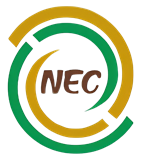The Role of Motivation, Self-Efficacy, and Peer Support in Driving Student Engagement: Bridging Theory and Practice
DOI:
https://doi.org/10.64008/gpej.v1i2.23Keywords:
student engagement, motivation, self-efficacy, peer support, higher educationAbstract
This study explores the role of motivation, self-efficacy, and peer support in influencing student engagement in higher education, aiming to connect theoretical perspectives with practical applications. A quantitative correlational research design was utilized, involving 223 university students from various faculties. Participants completed validated questionnaires measuring intrinsic and extrinsic motivation, academic self-efficacy, perceived peer support, and student engagement's behavioral, emotional, and cognitive dimensions. Data were analyzed using multiple regression techniques to determine the predictive strength of each variable. Results revealed that motivation and self-efficacy were significant predictors of student engagement, explaining a substantial portion of the variance. Peer support also demonstrated a comparatively more minor positive effect on engagement. These findings highlight the importance of internal psychological and external social influences in enhancing student engagement. The study supports integrating motivation theory and social learning principles into educational practice. Practical implications suggest that educators should foster supportive peer environments while promoting student motivation and confidence to improve learning outcomes. This research contributes to the growing body of literature emphasizing the multifaceted nature of student engagement and offers a foundation for future intervention-based studies in diverse educational settings.
References
Amar, K. M. C., Aton, J. G., Bulan, M. K., Crisostomo, C. M., Estrera, A. D., Linao, J. J., ... & Cabanilla Jr, A. (2025). Development and validation of instrument of self-perceived proficiency factors affecting students' problem-solving skills on gamified mathematic instruction. International Journal of Education in Mathematics, Science and Technology, 13(1), 121-149. https://doi.org/10.46328/ijemst.4514.
Bandura, A. (1977). Self-efficacy: Toward a unifying theory of behavioral change. Psychological review, 84(2), 191. https://psycnet.apa.org/doi/10.1037/0033-295X.84.2.191.
Bandura, A., & Wessels, S. (1997). Self-efficacy (pp. 4-6). Cambridge: Cambridge University Press.
Bembenutty, H., Kitsantas, A., DiBenedetto, M. K., Wigfield, A., Greene, J. A., Usher, E. L., ... & Chen, P. P. (2024). Harnessing motivation, self-efficacy, and self-regulation: Dale H. Schunk’s enduring influence. Educational Psychology Review, 36(4), 1-28. https://doi.org/10.1007/s10648-024-09969-9.
Bhardwaj, V., Zhang, S., Tan, Y. Q., & Pandey, V. (2025). Redefining learning: Student-centered strategies for academic and personal growth. In Frontiers in Education (Vol. 10, p. 1518602). Frontiers Media SA. https://doi.org/10.3389/feduc.2025.1518602.
Fredricks, J. A., & McColskey, W. (2012). The measurement of student engagement: A comparative analysis of various methods and student self-report instruments. In Handbook of research on student engagement (pp. 763-782). Boston, MA: Springer US. https://doi.org/10.1007/978-1-4614-2018-7_37.
Ghbari, T., Albadareen, G., Al-smadi, R., Damra, J., & Shammout, N. (2024). The mediating role of self-efficacy in the relationship between self-determination motive and academic engagement among undergraduate students. Participatory Educational Research, 11(3), 43-58. https://doi.org/10.17275/per.24.33.11.3.
Greco, A., Annovazzi, C., Palena, N., Camussi, E., Rossi, G., & Steca, P. (2022). Self-efficacy beliefs of university students: Examining factor validity and measurement invariance of the new academic self-efficacy scale. Frontiers in psychology, 12, 498824. https://doi.org/10.3389/fpsyg.2021.498824.
Howard, J. L., Bureau, J., Guay, F., Chong, J. X., & Ryan, R. M. (2021). Student motivation and associated outcomes: A meta-analysis from self-determination theory. Perspectives on Psychological Science, 16(6), 1300-1323. https://doi.org/10.1177/1745691620966789.
Jang, H., Kim, E. J., & Reeve, J. (2016). Why students become more engaged or more disengaged during the semester: A self-determination theory dual-process model. Learning and instruction, 43(1), 27-38. http://doi.org/10.1016/j.learninstruc.2016.01.002.
Jolly, P. M., Kong, D. T., & Kim, K. Y. (2021). Social support at work: An integrative review. Journal of organizational behavior, 42(2), 229-251. https://doi.org/10.1002/job.2485.
Karabacak-Çelik, A., & Aşantuğrul, N. (2024). The mediator role of positive experiences at school in the relationship between academic self-confidence and school belonging in turkish secondary school students. Child Indicators Research, 17(2), 683-704. https://doi.org/10.1007/s12187-023-10101-6.
Magnone, K. Q., & Yezierski, E. J. (2024). Beyond convenience: A case and method for purposive sampling in chemistry teacher professional development research. Journal of Chemical Education, 101(3), 718-726.
Osei, P. C., & Bjorklund, D. F. (2024). Motivating the learning process: Integrating self-determination theory into a dynamical systems framework. Educational Psychology Review, 36(3), 89. https://doi.org/10.1007/s10648-024-09934-6.
Reeve, J. (2013). How students create motivationally supportive learning environments for themselves: The concept of agentic engagement. Journal of educational psychology, 105(3), 579. https://psycnet.apa.org/doi/10.1037/a0032690.
Richardson, M., Abraham, C., & Bond, R. (2012). Psychological correlates of university students' academic performance: A systematic review and meta-analysis. Psychological bulletin, 138(2), 353. https://psycnet.apa.org/doi/10.1037/a0026838.
Ryan, R. M., & Deci, E. L. (2000). Self-determination theory and the facilitation of intrinsic motivation, social development, and well-being. American psychologist, 55(1), 68. https://psycnet.apa.org/doi/10.1037/0003-066X.55.1.68.
Schunk, D. H., & DiBenedetto, M. K. (2016). Self-efficacy theory in education. In Handbook of motivation at school (pp. 34-54). Routledge.
Sökmen, Y. (2021). The role of self-efficacy in the relationship between the learning environment and student engagement. Educational Studies, 47(1), 19-37. https://doi.org/10.1080/03055698.2019.1665986.
Souza, G. C. D., Meireles, E., Mira, V. L., & Leite, M. M. J. (2021). Academic motivation scale-reliability and validity evidence among undergraduate nursing students. Revista latino-americana de enfermagem, 29, e3420. https://doi.org/10.1590/1518-8345.3848.3420.
Tao, Y., & Yu, J. (2024). Cultural threads in writing mastery: A structural analysis of perfectionism, learning self-efficacy, and motivation as mediated by self-reflection in Chinese EFL learners. BMC psychology, 12(1), 80. https://doi.org/10.1186/s40359-024-01572-5.
Tinto, V. (1997). Classrooms as communities: Exploring the educational character of student persistence. The Journal of higher education, 68(6), 599-623. https://doi.org/10.1080/00221546.1997.11779003.
Van Ryzin, M. J., & Roseth, C. J. (2021). The cascading effects of reducing student stress: Cooperative learning as a means to reduce emotional problems and promote academic engagement. The Journal of Early Adolescence, 41(5), 700-724. https://doi.org/10.1177/0272431620950474.
Wong, Z. Y., & Liem, G. A. D. (2022). Student engagement: Current state of the construct, conceptual refinement, and future research directions. Educational Psychology Review, 34(1), 107-138. https://doi.org/10.1007/s10648-021-09628-3.
Zhu, J., Alam, M. M., Ding, Z., Ekambaram, P., Li, J., & Wang, J. (2021). The influence of group-level factors on individual energy-saving behaviors in a shared space: The case of shared residences. Journal of Cleaner Production, 311, 127560. https://doi.org/10.1016/j.jclepro.2021.127560.
Downloads
Published
Issue
Section
License
Copyright (c) 2025 Ramlan Mustapha, Shahlan Surat, Azam Syukur Rahmatullah (Author)

This work is licensed under a Creative Commons Attribution 4.0 International License.






